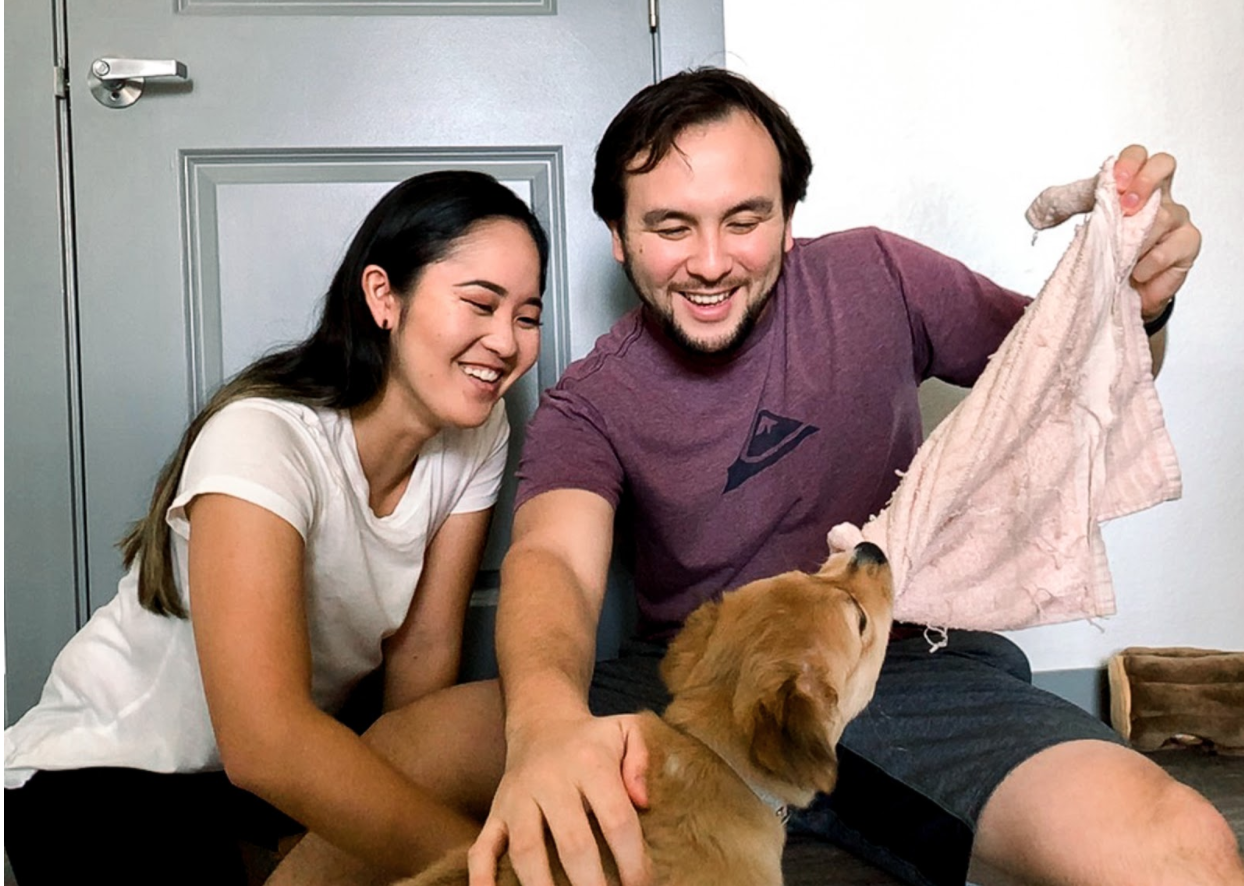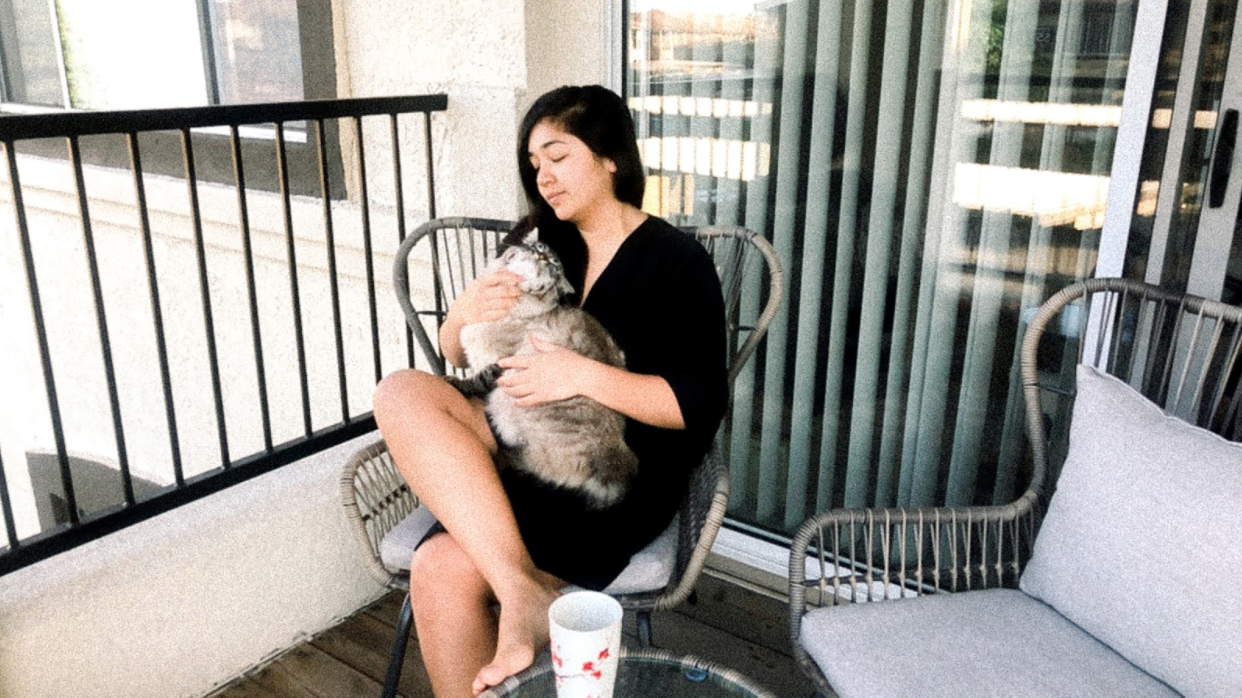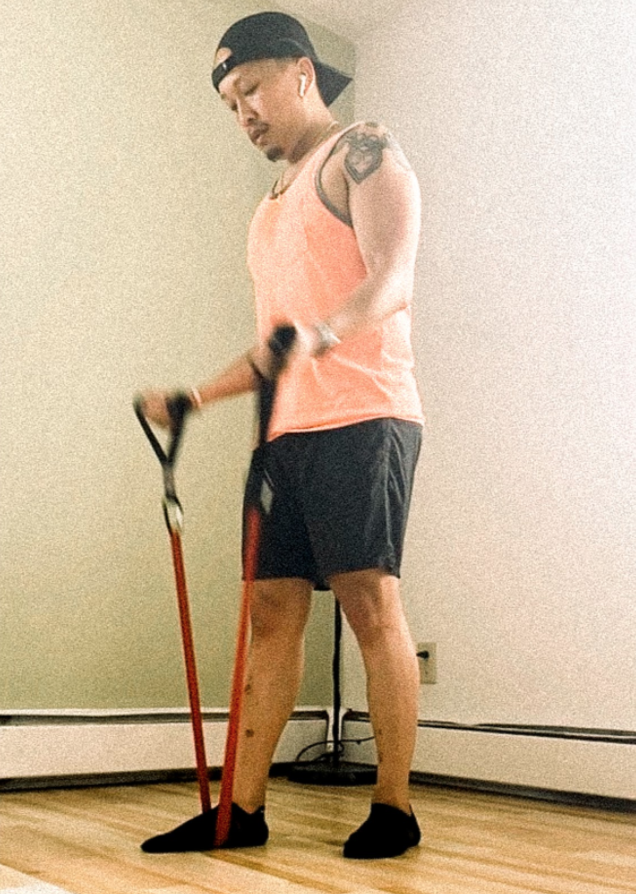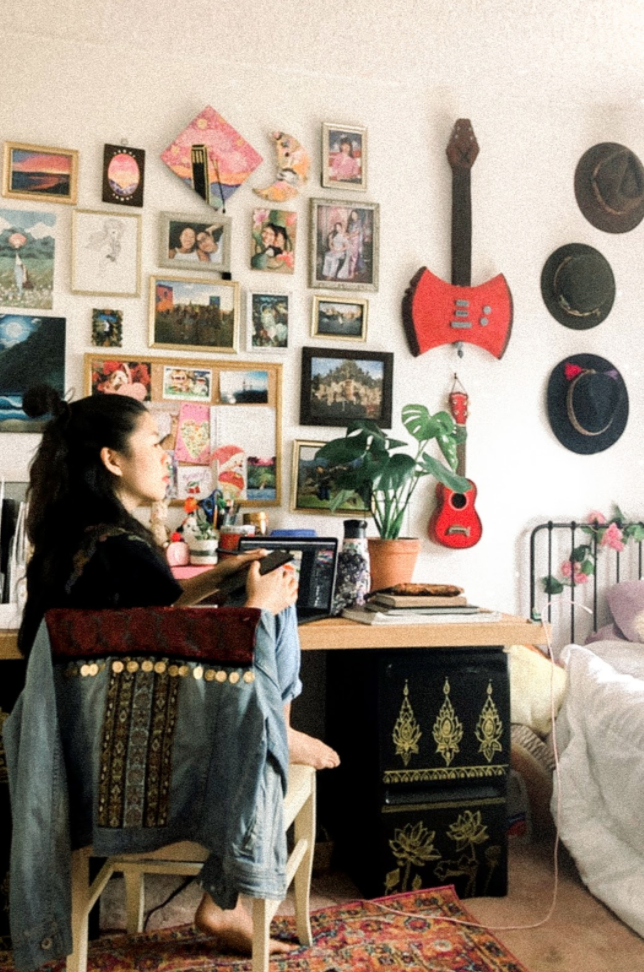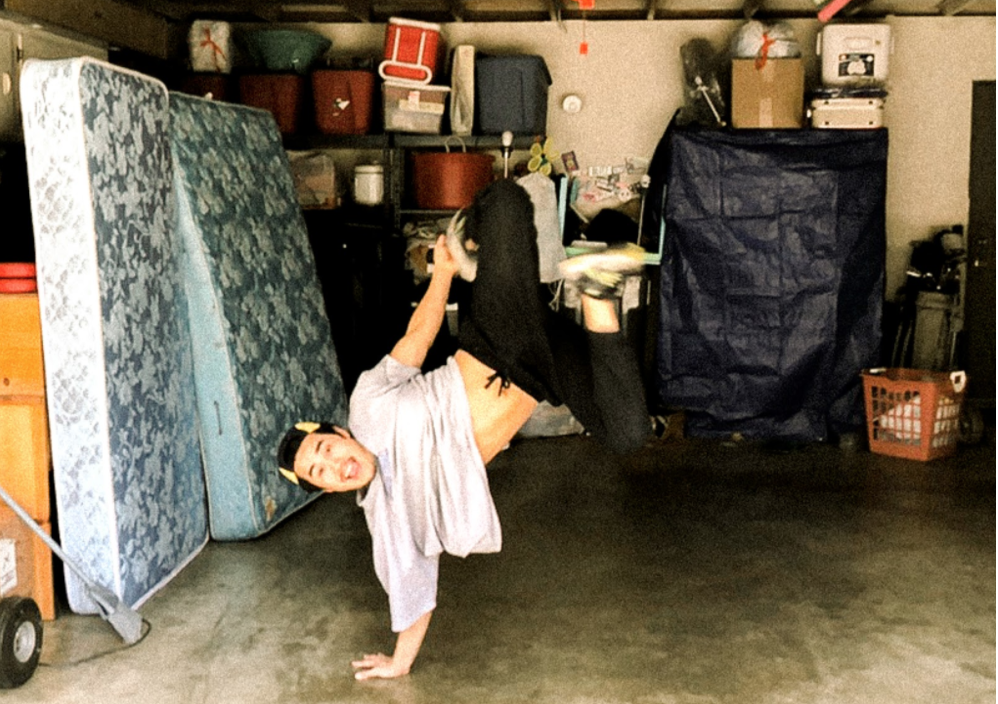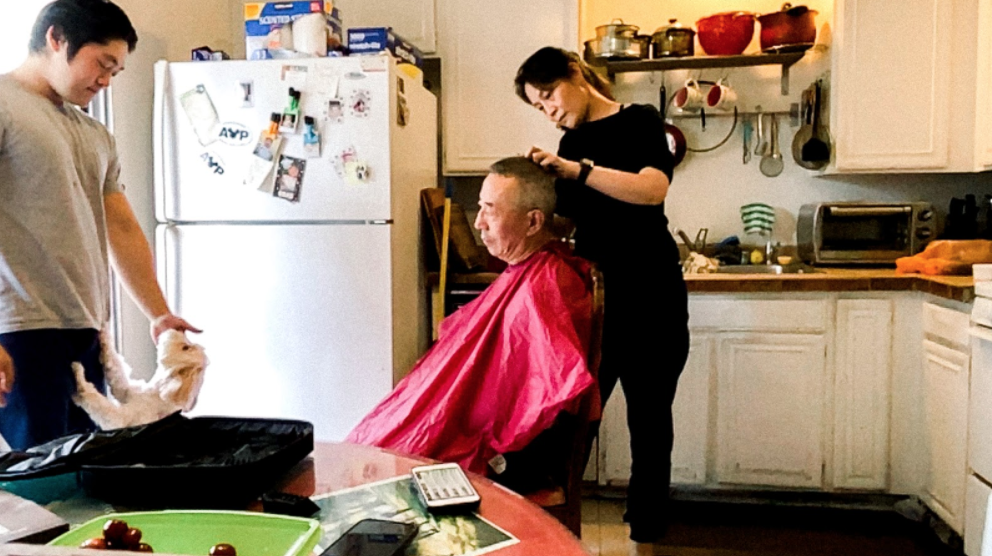Independence Through a Virtual Lens
Photography is intimate and profound. It captures subjects in a way that they cannot truly control. As a photographer who relies on in-person interaction with my clients and high-end equipment to create my final product, I felt COVID-19 had put a huge damper on a source of my happiness. My specialties are wedding, engagement, branding, and family photography.
I started doing virtual photoshoots with clients to make some more income, and to be honest, I craved human connection. The virus has completely changed the way we connect with folks, and in my opinion, it’s also changed what independence means. Seeing folks stockpile toilet paper, lose their jobs, and ultimately severing in-person connection are all examples I see as altering independence.
This project is a combination of my two passions: social justice and photography. All of these photoshoots were done during the quarantine stay at home order virtually through FaceTime, taken with iPhones - no in-person interaction or contact was made. I simply asked my subjects to chat with me while doing something they usually do in their everyday lives.
I asked folks these three questions:
How has your views and definitions of independence shaped and shifted due to COVID (if it hasn’t what is your definition of independence? What does it mean to you?).
How has the activity you’re doing in the photos that I took become a part of your definition of independence?
If you’d be willing to share: your salient identities and pronouns.
My goal is to amplify APIDA voices and experiences. The perspective that you take is, as art tends to be, up to you.
Kayla, Chris, and their dog Kina (pictured from left to right)
Kayla
1. I’d say that pre-quarantine I viewed independence as not needing to be around or rely on other people to be happy and thrive. Dependence is often seen as unhealthy, but COVID taught me that we literally do need one another to survive. With my partner, friends, and family getting laid off, furloughed, sick, or just having a hard time mentally, we’ve all relied on each other to support our well being. Independence, to me, has become more complex; it’s acknowledging that it does not mean making it alone, rather empowering and providing resources to one another to be happy and safe when we’re not physically there
2. This photo to me represents the way we navigate independence in our relationship. While Chris and I have different schedules and obligations, we step in to communally care for Kina so that we grow as a family. Sometimes they look like taking turns training and feeding her because of our work schedules, and sometimes that means enjoying the moment and process together. In either case, our moments with Kina give us purpose, energy, and motivation to keep going when either of us isn’t around.
3. 4th-gen queer Japanese Okinawan womxn, educator, artist, activist.
Chris
1. Prior to COVID, I was already pretty independent. However, due to working from home and being in the same space as my partner basically all day, I’ve learned that it’s important to develop opportunities, space, and time for each of us to focus on our own individual tasks, whether that is private workspace, time for individual workouts, or time for individual phone conversations with our own friends and colleagues. This has shown up in determining individual workspaces as well as stepping outside the apartment to go on walks and have individual phone conversations. However, this has come with the balance of partaking in activities together that focus on our relationship, whether that be walks outside with each other or specific time to be spent with each other indoors.
2. The photo taken of us captures the balance between independence and shared experiences that we experience in our relationship during COVID. The photo captures us with our puppy, Kina, who joined our family during the pandemic and has been a source of joy for both myself and my partner. This has been the case both in our individual interactions with Kina as well as the shared experiences that we’ve had together with her.
3. Cis, straight, man, mixed-race (Chinese & White).
Katelyn on her front porch with her cat Vinny
Katelyn
1. My views and definitions of independence have definitely shifted since the pandemic. Independence, for me, has always been a word of positive connotation, and it’s always been a word that I’ve had pride in when someone refers to me as “being independent.” I always interpreted “independence” and “self-sufficient.” To “not depend” on anyone or anything. However, during this global crisis, I’m surprised to see the level of obstinate independence within American culture. In regards to wearing masks and social distancing, I’ve observed many American people putting their independent interests first rather than coming together as a whole for the greater health of our nation.
2. Going back to what I previously said, independence has always been a strong part of my identity. I’m able to be self-sufficient in my own isolation. The past few months have been extremely difficult with being an ICU nurse of a COVID unit, current family members passing away, and a recent breakup of a long term relationship. The photo of me taking the time to sit and stop allows me to reflect interpersonally, tying into my strong independence of being self-sufficient. The biggest thing I’ve learned during this process is not to confuse independence with loneliness but that with independence, loneliness can accompany it.
3. Asian-Hispanic American, gay identifying woman
Toubee doing an at-home workout with resistance bands
Toubee
1. I don’t think my views and definition of independence have changed due to COVID. I think how and what it looks like is different than what I imagined it to be under normal circumstances. I had just moved into an apartment of my own a mere two weeks prior to the start of my state’s stay-at-home order. So I was going to be living on my own already anyway and had to be self-sufficient in many ways. I wasn’t prepared for the additional things I was going to have to do without now or do on my own, such as working out, virtual social activities, and remote work.
2. I’m so used to going to a group fitness class and being coached through a workout with others. It’s sometimes competitive but mostly motivating to be around that energy. So it was hard to adjust to having to do that alone in my living room without someone telling me what to do. I had to hold myself accountable for maintaining my fitness during the pandemic, and it wasn’t an excuse to completely stop doing something I love to do and need for my well-being. Therefore, my independence came in by establishing a new routine and setting realistic goals that would best support my needs and the limitations I faced.
3. Queer, Hmong, Educator, He/Him/His
Bryce cooking homemade salsa and steak
Bryce
1. I think my idea of independence changed dramatically because I thought of independence as doing what I wanted to do when I wanted, but I am realizing independence is doing what’s best for your community and society in general. I also had the ability to work from home when COVID hit, and when this photoshoot happened, I had two roommates living with me, but because they lost their jobs, they both chose to move out. I am a lot more cautious when visiting my family and it comes much more rare because they are older, but the moments we share are much more meaningful, even my dad and I have had some conversations which did not really happen pre-COVID. I feel like this virus has affected my ability to go out, but it has helped with my friendships via zoom and text messages. I have been talking to more people consistently now then I was pre-COVID, and that says a lot. I think I value time with all people a lot more now, and I am more aware of how my actions affect others, like wearing my mask in public and just being mindful of my space.
2. I think COVID has helped a lot of people with their at-home activities, including trying to cook different things. In the beginning, I was cooking some crazy things cause I was just trying to survive, and it was a crazy time. Things are still crazy, but now I am trying to find more health-conscious recipes to try since I do have that ability being at home all the time. It’s all about balance, and that’s what cooking has really taught me. Learning how to use my voice to address social justice issues. I realize I may not always be the loudest, but I have made more of an effort to have these conversations with friends and family.
3. Japanese American, Cisgender Male (he/him/his), Enneagram 2, ENFJ.
Beverly creating illustrations in her bedroom
Beverly
1. My parents immigrated alone to America, so as a unit, we’ve always been independent from the rest of our familial network. The only people I’ve ever depended on are my parents, and I think since COVID hit, the interdependence between us shifted - I became the main person to go out and get food and other things to keep them as safe as possible. So having the dynamic of aging up and becoming the one that they can depend on instead is one way I’ve felt my independence change.
2. Again, with immigrant parents, the idea of being an artist is never something they like to support. However, over the past couple of years, I’ve been diving into digital illustration, which led to my first paid commission. My parents were pleasantly surprised! They had been delighted by a few drawings of our cultural food I’d done for fun but to have tangible proof that my illustrations could actually make money hopefully helped change their view on what kind of work can lead to independence (at least a little bit).
3. Chinese/Malaysian/American womxn, multimedia artist, she/her.
Jonathan break dancing in his favorite practice spot, his garage.
Jonathan
1. I think it’s common amongst Americans to feel like the utmost good is what one does, in their best conscience, for the individual. However, in this time where COVID-19 has made it apparent that we need to depend on the actions of one another to be well and thrive, there is this balancing act of understanding how do we grow collectivism and still protect our individualism in doing so. That’s very hard when it comes to the life of artists that seek inspiration and motivation to create. And yet there is some comfort that in a time where we question what is possible in our scope of independence, we also should ask how much more can we do when knowing interdependence is an asset to be grown as well. This goes for all of us pursuing goals and passions. The front line medical professionals, essential workers, grassroots organizers, supporters of all of those aforementioned, they have not only made the world run in this pandemic but every single day, 24/7. The opportunity to chase our dreams and passions is only possible by helping one another. Blessed to recognize that more than ever humbled to know that we all need to do our part.
2. Breaking has been a big part of my life for the past 14 years, although it’s been a long time since I have felt the innocence and wide-eyed awe I once had for the dance. During the three months of quarantine, I was able to break almost every day, on the days I didn’t want to, and the days I desperately needed it. It was really vital to processing this time of uncertainty and confusion—a sort of meditation in motion. I felt like a kid again in many ways finding memories in movement and maneuvers. This nostalgia gave way to me, recognizing the pathway to independence that was given through Breaking. It takes a lot to dance in front of peers and strangers, being unabashedly you. To have your own style, character, and mind for the art form. I carry that with me everywhere I go.
3. First-generation Singaporean-Chinese American Educator and Artist.
My family - Mom giving Dad a haircut while William plays with Freddie
I wanted to end with a photo of my family. I don’t live at home anymore, but my family is my whole world. Growing up in an immigrant household certainly changed my definition of independence. I felt very independent, helping my parents translate documents, navigate various in-person things like ordering food at restaurants, and essentially being the head of household from a very young age. However, my independence ended there. I was expected to be home early, couldn’t go to sleepovers, and my dad called what seemed like every few hours even when I was in college. Independence certainly has taken on a new flavor for us. After marriage, my parents struggled to let me go. Therapy has changed our relationship a lot, but I think it is for the better.

